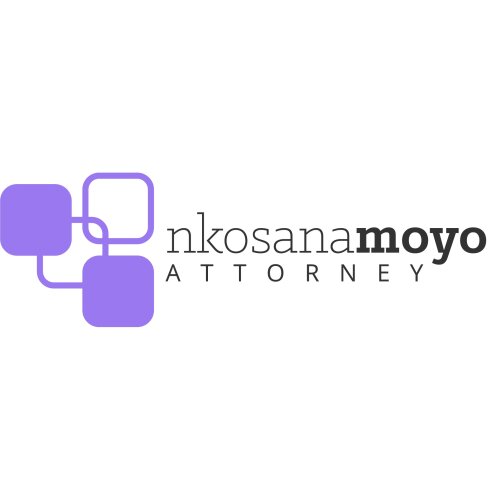Best Technology Transactions Lawyers in South Africa
Share your needs with us, get contacted by law firms.
Free. Takes 2 min.
Or refine your search by selecting a city:
List of the best lawyers in South Africa
About Technology Transactions Law in South Africa
Technology Transactions Law in South Africa encompasses the legal aspects of transactions involving the development, transfer, licensing, and commercialization of technology-based products and services. This includes software development agreements, licensing deals, cloud computing arrangements, and intellectual property transfers. The aim is to protect the interests of both parties involved, ensuring that technologies are used and transferred in a manner consistent with the legal framework and both parties’ objectives.
Why You May Need a Lawyer
People may require legal assistance in technology transactions for various reasons, including:
- Negotiating and drafting agreements for software licensing or technology transfer.
- Ensuring compliance with local and international regulations governing technology and data use.
- Protecting intellectual property rights involved in technology transactions.
- Resolving disputes arising from contract breaches or misunderstandings.
- Understanding the implications of cross-border transactions from a technological and jurisdictional perspective.
- Advising on the privacy and data protection obligations applicable to technology services, particularly with regard to the Protection of Personal Information Act (POPIA).
Local Laws Overview
Key legal aspects of technology transactions in South Africa include:
- Protection of Personal Information Act (POPIA): Regulates how companies can collect, store, and process personal information.
- Copyright and Intellectual Property: Laws protecting software, digital content, and other technology-related innovations. The Copyright Act and Patents Act are key statutes.
- Electronic Communications and Transactions Act (ECTA): Provides a framework for electronic commerce, electronic communications, and data protection.
- Consumer Protection Act: Governs transactions where technology is provided as a service to consumers, ensuring fair contractual practices and consumer rights.
- Competition Act: Scrutinizes agreements and mergers to prevent anti-competitive behavior in the technology market.
Frequently Asked Questions
What constitutes a technology transaction?
A technology transaction could involve the buying, selling, licensing, or development of technology products and services, including software, hardware, and digital platforms.
Do I need a legal agreement for a software license?
Yes, a legal agreement is crucial for defining the terms under which software can be used, limits of usage, liability issues, and intellectual property rights.
How does POPIA affect technology transactions?
POPIA affects transactions involving personal data by stipulating how data must be lawfully processed, stored, and transferred, and it requires explicit consent for data use.
Is my foreign software license enforceable in South Africa?
It may be enforceable, but it's recommended to have a local legal expert review the agreement to ensure compliance with South African laws and to address any jurisdictional issues.
What are the common disputes in technology transactions?
Common disputes include intellectual property infringement, breaches of contract terms, non-payment, and issues related to software defects or service level agreements.
How is intellectual property protected in technology transactions?
Intellectual property is protected through patents, copyrights, and trademarks, and by including specific clauses in agreements to safeguard these assets during transactions.
What is the role of a technology lawyer?
A technology lawyer provides legal advice, drafts, and reviews agreements, ensures regulatory compliance, manages risks, and helps resolve disputes in technology-related transactions.
How does ECTA affect online transactions?
ECTA facilitates legal recognition of electronic commerce, ensuring that online contracts are enforceable and that digital signatures are legally valid.
What should a technology agreement include?
A technology agreement should include scope of work, payment terms, intellectual property rights, confidentiality clauses, liability limitations, and dispute resolution mechanisms.
Can technology transactions involve barter arrangements?
Yes, technology transactions can involve barter arrangements, such as exchanging usage rights to different technologies, but these should be documented clearly in an agreement.
Additional Resources
For further assistance, consider reaching out to the following resources:
- Department of Trade, Industry and Competition (DTIC) - provides policy guidelines and support for technology businesses.
- Companies and Intellectual Property Commission (CIPC) - manages patents, trademarks, and company registrations in South Africa.
- Law Society of South Africa - offers resources and listings of legal professionals specializing in technology transactions.
- Technology Innovation Agency (TIA) - supports the development and commercialization of technology innovations.
Next Steps
If you need legal assistance in technology transactions, it is crucial to consult with a legal professional experienced in this field. Start by:
- Researching and selecting a lawyer with expertise in technology and intellectual property law.
- Preparing all relevant documents and information related to your technology transaction.
- Contacting the lawyer to discuss your needs, clarify your objectives, and explore your options.
- Ensuring ongoing communication with your lawyer to effectively address any emerging legal issues.
Lawzana helps you find the best lawyers and law firms in South Africa through a curated and pre-screened list of qualified legal professionals. Our platform offers rankings and detailed profiles of attorneys and law firms, allowing you to compare based on practice areas, including Technology Transactions, experience, and client feedback.
Each profile includes a description of the firm's areas of practice, client reviews, team members and partners, year of establishment, spoken languages, office locations, contact information, social media presence, and any published articles or resources. Most firms on our platform speak English and are experienced in both local and international legal matters.
Get a quote from top-rated law firms in South Africa — quickly, securely, and without unnecessary hassle.
Disclaimer:
The information provided on this page is for general informational purposes only and does not constitute legal advice. While we strive to ensure the accuracy and relevance of the content, legal information may change over time, and interpretations of the law can vary. You should always consult with a qualified legal professional for advice specific to your situation.
We disclaim all liability for actions taken or not taken based on the content of this page. If you believe any information is incorrect or outdated, please contact us, and we will review and update it where appropriate.
Browse technology transactions law firms by city in South Africa
Refine your search by selecting a city.
















